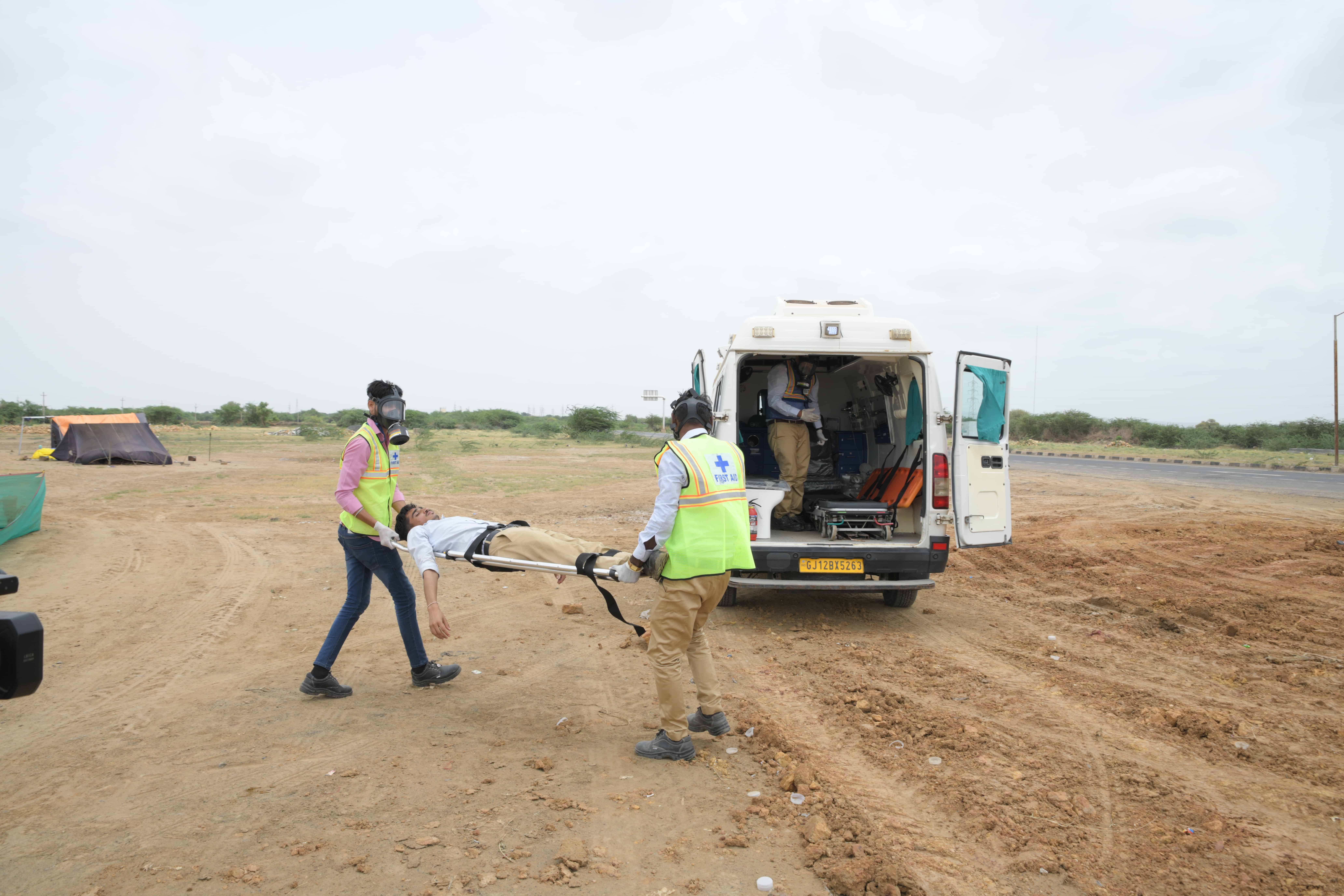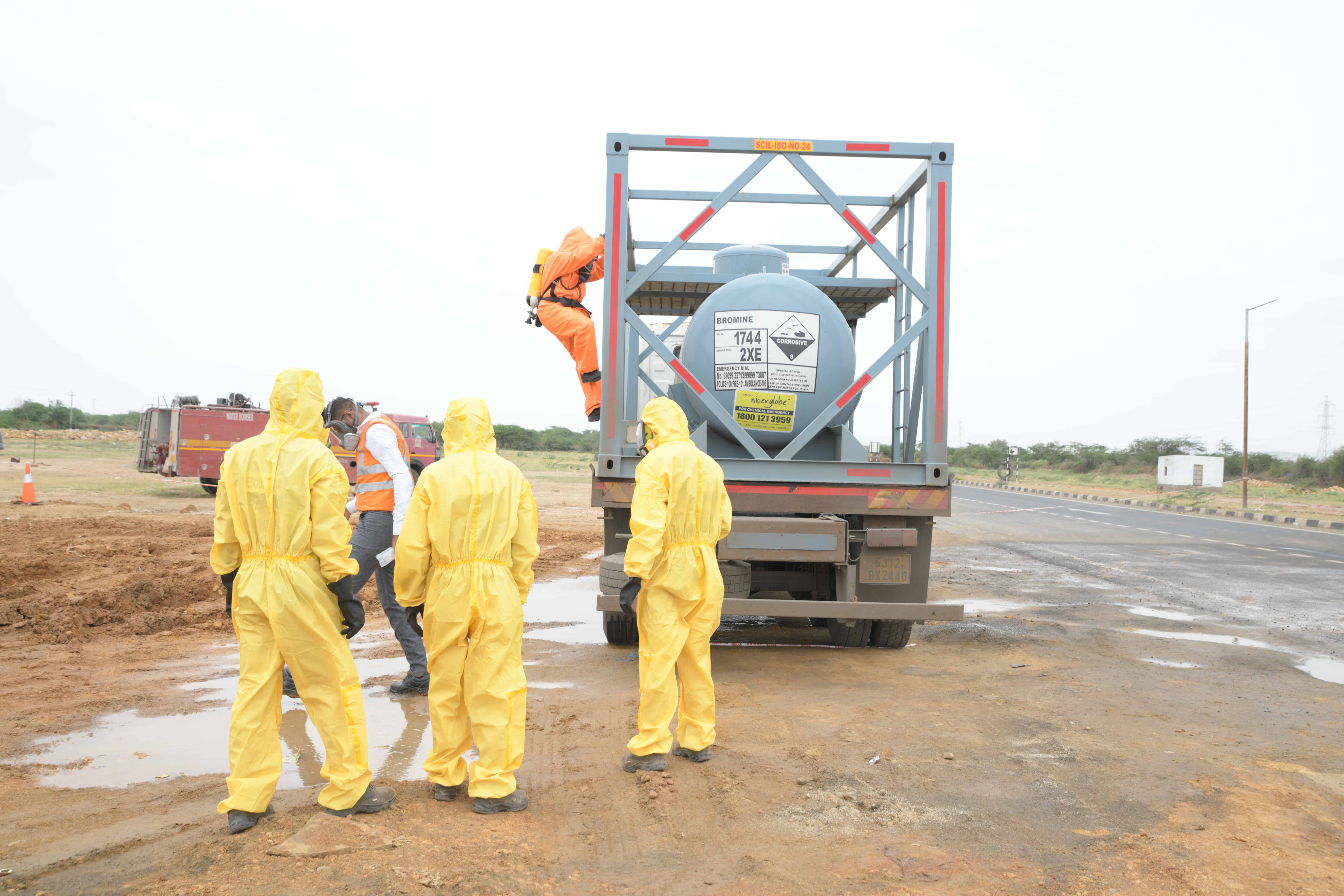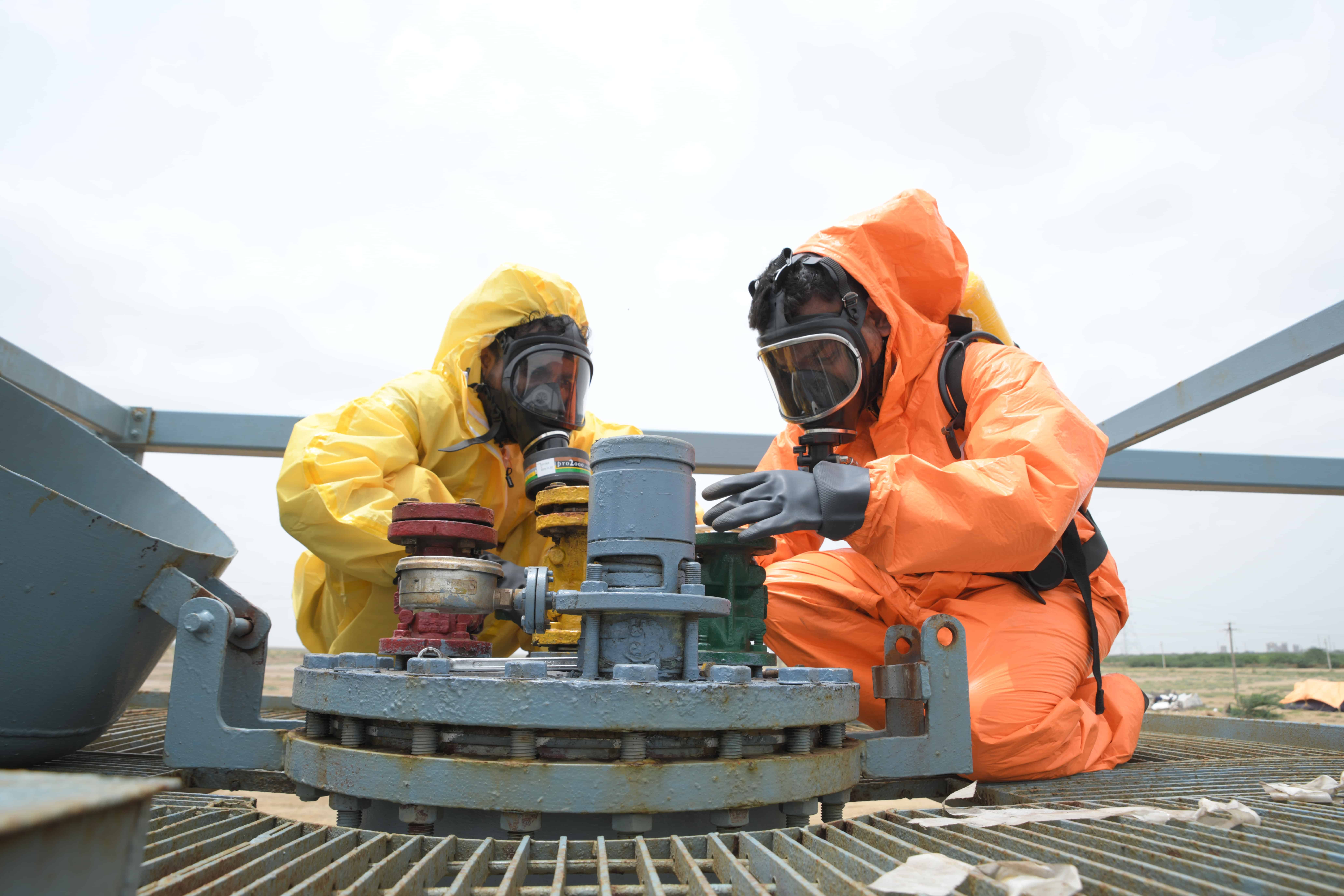
14 Feb Bromine Spill Incident Simulation Exercise conducted by India Bromine Platform (IBP)
Since its inception in 2019, the India Bromine Platform (IBP) [1], has greatly focused on fostering the bromine ecosystem in India. Its Safety Working Group (SWG), which includes member companies such as Agrocel, Archean, Lanxess, Technochem, Satyesh Brinechem, Solaris Chemtech, Tata Chemicals, the Indian Chemical Council (ICC) and the Nicerglobe platform [2] has been conducting several initiatives dedicated to the safe handling of bromine, notably during transportation.
One of the most recent initiatives took place in August 2023 and saw a mock drill which simulated a Bromine spill during road transportation and the ensuing emergency response. The simulation, which was conducted near the city of Bhuj, in the state of Gujarat (West India), saw the participation of more than 50+ stakeholders including IBP members, emergency responders, local fire ambulance, fire brigade, local police and technical observers (such as the Assistant Director of Factory). Exercises such as these allow for industry to continue to ensure high levels of safety throughout the Bromine production and transport life, protecting both workers and the general public.
Incident Scenario & Simulation Exercise
The incident scenario saw a Bromine ISO tank [3] being transported on a highway. When the driver stopped the vehicle near a small tea stall for a break, he was able to observe an ‘unconscious’ person laying on the ground next to the ISO tank and mock bromine fumes coming from its dome cover. This triggered the implementation of the appropriate emergency measures.



- The driver’s response from registering the Bromine spill to use of safety equipment, and effective communication with emergency helplines
- Emergency handling and leak arrest by Nicer Globe Emergency Responders
- Support provided by Solaris Emergency Responders
- Emergency handling of Local Fire brigade, Police (Diverting Traffic) and Ambulance (First Aid and transporting the unconscious person to hospital)
Learnings
Post the completion of the mock drill, several insights were gathered, such as the changes required in the driver’s immediate response, the type of water formation needed to disperse a bromine cloud, the instruments needed to test the temperature and the overall time taken by the driver to complete the different actions. Overall, the mock drill allowed for the identification of several areas of protocols’ refinement, including possible improvements to the response time and communication and coordination among stakeholders.
Way Forward
Given the highly successful implementation of the mock drill and the resulting collection of valuable learnings, more simulations are foreseen in the future. The next mock drills will also possibly see the “addition” of more uncontrolled variables to in order to increase the understanding of different emergency scenarios.
This exercise has further demonstrated the great level of commitment to safety of all the companies and stakeholders involved, showing the IBP and its partners’ dedication to ensuring the highest standards in chemical transportation, making it safer and more efficient.
Footnotes:
[1]The India Bromine Platform (IBP) is composed of bromine producers and suppliers in the country. More information is available: here:https://www.indianchemicalcouncil.com/indian-bromine-platform.htm#:~:text=The%20India%20Bromine%20platform%20will,Responsible%20Care%20and%20Nicer%20Globe
[2] Initiative by the Indian Chemical Council (ICC) that aims to make chemical transportation safer and more efficient.
[3] An intermodal container, often called a shipping container or ISO Container, is a large standardized container designed and built for intermodal freight transport, meaning these containers can be used across different modes of transport – such as from ships to trains to trucks – without unloading and reloading their cargo.




No Comments